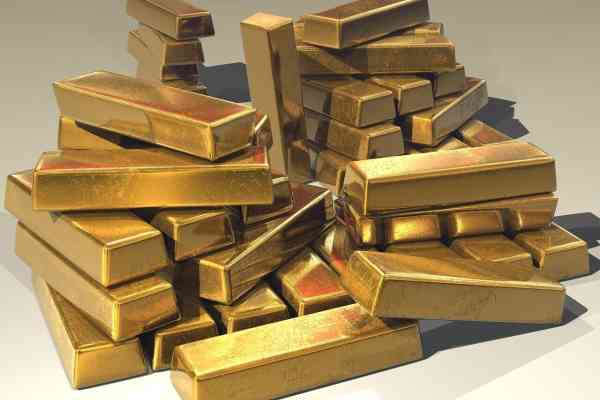March 16th, 2021 | 09:50 CET
Defense Metals, Geely Motors, ThyssenKrupp - Watch out, China is coming!
The commodity rally is still in full swing. A messed-up economic forecast has turned into a witch hunt for all major ingredients for high technology products. Whether it's cell phones, electric vehicles, non-fossil fuel power generation and storage, or modern server farms, they are needed everywhere - industrial metals. For special applications, we even need rare earths; these, in turn, are the process of a political chain of demands against the leading supplier - China. If China no longer supplies these crucial materials, modern high-tech products can no longer be manufactured. But where to get them, if not steal them?
time to read: 4 minutes
|
Author:
André Will-Laudien
ISIN:
CA2446331035 , KYG3777B1032 , DE0007500001
Table of contents:

"[...] We have 34.3 million tones in the measured and indicated categories... [...]" Craig Taylor, CEO, Defense Metals Corp.
Author
André Will-Laudien
Born in Munich, he first studied economics and graduated in business administration at the Ludwig-Maximilians-University in 1995. As he was involved with the stock market at a very early stage, he now has more than 30 years of experience in the capital markets.
Tag cloud
Shares cloud
Defense Metals - A vital resource emerges
Demand in the electric vehicle (EV) industry is causing supply shortages in key metals such as copper, nickel and lithium. For nickel, for example, demand growth from EVs is expected to increase 14-fold between 2019 and 2030. For lithium and copper, demand growth is expected to be 9-10 times. Many metals are extracted in specific regions, and it is not uncommon for there to be political instability due to the high economic dimension. Around 50% of the world's cobalt, another vital material, comes from the Democratic Republic of Congo.
The same applies to the so-called rare earths, a unique group of extremely rare metals. The deposits of rare earths are found mainly in China, with more than 80%, and to a lesser extent in North America. The current bone of contention, also under the Biden administration, is arms exports to Taiwan - a major thorn in the Chinese government's side.
Should the trade war escalate again, the electromagnetically important metals such as neodymium, praseodymium, dysprosium and terbium could end up on the sanctions list against the US. Currently, the Western industrial nations agree that they have long been talking about strategic metals and that a supply-side dominated by China cannot be the egg of Columbus. So they are looking for new deposits that, if developed, could fill the successive gaps in supply.
Canadian explorer Defense Metals has come to investors' attention with its property in Wicheeda, British Columbia. The results of an X-ray study show that the REE grades can be optimally extracted using low-cost front-end processing. The share price jumped from CAD 0.20 in December to over CAD 0.70 in February 2021 as the Defense Project now enters a new phase. With a current share price of CAD 0.46, the market capitalization reaches only CAD 27 million, an interesting level given the tight situation in the metals sector.
Geely Automobile - Poor sales figures weigh on the share price
Chinese car Company Geely Automobile Holdings Ltd. has published its delivery figures for February 2021 and has disappointed once again. Growth is declining - one would currently expect something different from e-mobility. In February, a total of 77,221 vehicles were sold, an increase of 265% compared to the same period last year. However, compared with the previous month, when the Company sold 156,326 units, sales slumped by more than half. The sales figures also include vehicles sold through the 50/50 joint venture Lynk & Co.
Among the total number of cars delivered by Geely Automobile in February 2021 were 2,539 New Energy and Electrified Vehicles (NEEVs), a significant deterioration from the previous month's 4,289 units (December: 7,171 units). Without further ado, sales of alternative propulsion methods to the internal combustion engine are sputtering. One could invoke the Chinese New Year, but those who want to buy a new car will do so in a month of celebration (perhaps even more so then).
Of course, the Geely Group has much more to offer. In December 2020, Geely Technology Group agreed with Daimler's Chinese partner Farasis Energy to represent their shared lithium-ion battery interests in a joint venture. Since Geely, in turn, has a stake in Daimler, an amalgamation of the plans of all three groups is obvious. Geely Automobile's share price has been under pressure since January 2021. From the high of EUR 3.63, it recently went down to EUR 2.40, but that was just about the distance that the share was able to gain in December. Over the year, the value has still doubled.
ThyssenKrupp AG - Germany at risk as a steel location
The future of the German steel sector continues to raise many questions. North Rhine-Westphalia's Minister-President Armin Laschet has once again rejected a state takeover of ThyssenKrupp, leaving the Company itself to deal with the market's adversities. The much cheaper competition from China, in particular, is becoming increasingly dangerous. The industry has been struggling with dumped imports for years.
A few years ago, products from the Middle Kingdom were still considered backward. Neither quality nor sustainability could keep up with the European competition, which was why the Chinese campaigned for import restrictions. But the tide has now turned. Arnd Köfler, the Chief Technology Officer at ThyssenKrupp Steel, made it public that the new steel mills in China also met the highest technological standards. The country is massively expanding its renewable energy capacities, which means that more green electricity can be used for climate-friendly steel production in the future.
Like the entire European steel industry, ThyssenKrupp is therefore under technological pressure. Thinking a little further, hydrogen technology, for example, would push two issues at once. On the one hand, the automotive industry urgently needs an alternative to the unclean battery, and on the other, H2 could enable the production of a "green steel." Of course, this requires funds that are not easy to conjure up in Thyssen's battered balance sheet. So the pressure from China will tend to intensify.
Investors who are willing to take risks have bought Thyssen shares on the upside for the time being because hopes of an economic turnaround are also expected to turn everything around for the better at Thyssen. At EUR 11.65, however, the stock is not yet out of the woods. A chart breakout would only be seen at prices above EUR 13.20.
Conflict of interest
Pursuant to §85 of the German Securities Trading Act (WpHG), we point out that Apaton Finance GmbH as well as partners, authors or employees of Apaton Finance GmbH (hereinafter referred to as "Relevant Persons") may in the future hold shares or other financial instruments of the mentioned companies or will bet on rising or falling on rising or falling prices and therefore a conflict of interest may arise in the future. conflict of interest may arise in the future. The Relevant Persons reserve the shares or other financial instruments of the company at any time (hereinafter referred to as the company at any time (hereinafter referred to as a "Transaction"). "Transaction"). Transactions may under certain circumstances influence the respective price of the shares or other financial instruments of the of the Company.
Furthermore, Apaton Finance GmbH reserves the right to enter into future relationships with the company or with third parties in relation to reports on the company. with regard to reports on the company, which are published within the scope of the Apaton Finance GmbH as well as in the social media, on partner sites or in e-mails, on partner sites or in e-mails. The above references to existing conflicts of interest apply apply to all types and forms of publication used by Apaton Finance GmbH uses for publications on companies.
Risk notice
Apaton Finance GmbH offers editors, agencies and companies the opportunity to publish commentaries, interviews, summaries, news and etc. on news.financial. These contents serve information for readers and does not constitute a call to action or recommendations, neither explicitly nor implicitly. implicitly, they are to be understood as an assurance of possible price be understood. The contents do not replace individual professional investment advice and do not constitute an offer to sell the share(s) offer to sell the share(s) or other financial instrument(s) in question, nor is it an nor an invitation to buy or sell such.
The content is expressly not a financial analysis, but rather financial analysis, but rather journalistic or advertising texts. Readers or users who make investment decisions or carry out transactions on the basis decisions or transactions on the basis of the information provided here act completely at their own risk. There is no contractual relationship between between Apaton Finance GmbH and its readers or the users of its offers. users of its offers, as our information only refers to the company and not to the company, but not to the investment decision of the reader or user. or user.
The acquisition of financial instruments entails high risks that can lead to the total loss of the capital invested. The information published by Apaton Finance GmbH and its authors are based on careful research on careful research, nevertheless no liability for financial losses financial losses or a content guarantee for topicality, correctness, adequacy and completeness of the contents offered here. contents offered here. Please also note our Terms of use.



